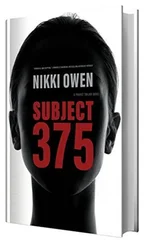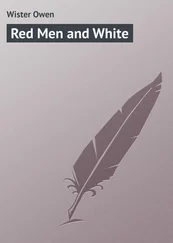Owen Wister - The Virginian
Здесь есть возможность читать онлайн «Owen Wister - The Virginian» весь текст электронной книги совершенно бесплатно (целиком полную версию без сокращений). В некоторых случаях можно слушать аудио, скачать через торрент в формате fb2 и присутствует краткое содержание. Жанр: Вестерн, на английском языке. Описание произведения, (предисловие) а так же отзывы посетителей доступны на портале библиотеки ЛибКат.
- Название:The Virginian
- Автор:
- Жанр:
- Год:неизвестен
- ISBN:нет данных
- Рейтинг книги:4 / 5. Голосов: 1
-
Избранное:Добавить в избранное
- Отзывы:
-
Ваша оценка:
- 80
- 1
- 2
- 3
- 4
- 5
The Virginian: краткое содержание, описание и аннотация
Предлагаем к чтению аннотацию, описание, краткое содержание или предисловие (зависит от того, что написал сам автор книги «The Virginian»). Если вы не нашли необходимую информацию о книге — напишите в комментариях, мы постараемся отыскать её.
The Virginian — читать онлайн бесплатно полную книгу (весь текст) целиком
Ниже представлен текст книги, разбитый по страницам. Система сохранения места последней прочитанной страницы, позволяет с удобством читать онлайн бесплатно книгу «The Virginian», без необходимости каждый раз заново искать на чём Вы остановились. Поставьте закладку, и сможете в любой момент перейти на страницу, на которой закончили чтение.
Интервал:
Закладка:
He had made me feel my inexperience, convinced me of innocence, undoubtedly; and during the final days of our journey I no longer invoked his aid to my reflections upon this especial topic: What would the Virginian do to Trampas? Would it be another intellectual crushing of him, like the frog story, or would there be something this time more material — say muscle, or possibly gunpowder — in it? And was Scipio, after all, infallible? I didn't pretend to understand the Virginian; after several years' knowledge of him he remained utterly beyond me. Scipio's experience was not yet three weeks long. So I let him alone as to all this, discussing with him most other things good and evil in the world, and being convinced of much further innocence; for Scipio's twenty odd years were indeed a library of life. I have never met a better heart, a shrewder wit, and looser morals, with yet a native sense of decency and duty somewhere hard and fast enshrined.
But all the while I was wondering about the Virginian: eating with him, sleeping with him (only not so sound as he did), and riding beside him often for many hours.
Experiments in conversation I did make — and failed. One day particularly while, after a sudden storm of hail had chilled the earth numb and white like winter in fifteen minutes, we sat drying and warming ourselves by a fire that we built, I touched upon that theme of equality on which I knew him to hold opinions as strong as mine. "Oh," he would reply, and "Cert'nly"; and when I asked him what it was in a man that made him a leader of men, he shook his head and puffed his pipe. So then, noticing how the sun had brought the earth in half an hour back from winter to summer again, I spoke of our American climate.
It was a potent drug, I said, for millions to be swallowing every day.
"Yes," said he, wiping the damp from his Winchester rifle.
Our American climate, I said, had worked remarkable changes, at least.
"Yes," he said; and did not ask what they were.
So I had to tell him. "It has made successful politicians of the Irish. That's one. And it has given our whole race the habit of poker."
Bang went his Winchester. The bullet struck close to my left. I sat up angrily.
"That's the first foolish thing I ever saw you do!" I said.
"Yes," he drawled slowly, "I'd ought to have done it sooner. He was pretty near lively again." And then he picked up a rattlesnake six feet behind me. It had been numbed by the hail, part revived by the sun, and he had shot its head off.
XVIII. "WOULD YOU BE A PARSON?"
After this I gave up my experiments in conversation. So that by the final afternoon of our journey, with Sunk Creek actually in sight, and the great grasshoppers slatting their dry song over the sage-brush, and the time at hand when the Virginian and Trampas would be "man to man," my thoughts rose to a considerable pitch of speculation.
And now that talking part of the Virginian, which had been nine days asleep, gave its first yawn and stretch of waking. Without preface, he suddenly asked me, "Would you be a parson?"
I was mentally so far away that I couldn't get back in time to comprehend or answer before he had repeated: "What would yu' take to be a parson?"
He drawled it out in his gentle way, precisely as if no nine days stood between it and our last real intercourse.
"Take?" I was still vaguely moving in my distance. "How?"
His next question brought me home.
"I expect the Pope's is the biggest of them parson jobs?"
It was with an "Oh!" that I now entirely took his idea. "Well, yes; decidedly the biggest."
"Beats the English one? Archbishop — ain't it? — of Canterbury? The Pope comes ahead of him?"
"His Holiness would say so if his Grace did not."
The Virginian turned half in his saddle to see my face — I was, at the moment, riding not quite abreast of him — and I saw the gleam of his teeth beneath his mustache. It was seldom I could make him smile, even to this slight extent. But his eyes grew, with his next words, remote again in their speculation.
"His Holiness and his Grace. Now if I was to hear 'em namin' me that-a-way every mawnin', I'd sca'cely get down to business."
"Oh, you'd get used to the pride of it."
"'Tisn't the pride. The laugh is what would ruin me. 'Twould take 'most all my attention keeping a straight face. The Archbishop" — here he took one of his wide mental turns—"is apt to be a big man in them Shakespeare plays. Kings take talk from him they'd not stand from anybody else; and he talks fine, frequently. About the bees, for instance, when Henry is going to fight France. He tells him a beehive is similar to a kingdom. I learned that piece." The Virginian could not have expected to blush at uttering these last words. He knew that his sudden color must tell me in whose book it was he had learned the piece. Was not her copy of Kenilworth even now in his cherishing pocket? So he now, to cover his blush, very deliberately recited to me the Archbishop's discourse upon bees and their kingdom:
"'Where some, like magistrates, correct at home…
Others, like soldiers, armed in their stings,
Make loot upon the summer's velvet buds;
Which pillage they with merry march bring home
To the tent-royal of their emperor:
He, busied in his majesty, surveys
The singing masons building roofs of gold.'
"Ain't that a fine description of bees a-workin'? 'The singing masons building roofs of gold!' Puts 'em right before yu', and is poetry without bein' foolish. His Holiness and his Grace. Well, they could not hire me for either o' those positions. How many religions are there?"
"All over the earth?"
"Yu' can begin with ourselves. Right hyeh at home I know there's Romanists, and Episcopals—"
"Two kinds!" I put in. "At least two of Episcopals."
"That's three. Then Methodists and Baptists, and—"
"Three Methodists!"
"Well, you do the countin'."
I accordingly did it, feeling my revolving memory slip cogs all the way round. "Anyhow, there are safely fifteen."
"Fifteen." He held this fact a moment. "And they don't worship a whole heap o' different gods like the ancients did?"
"Oh, no!"
"It's just the same one?"
"The same one."
The Virginian folded his hands over the horn of his saddle, and leaned forward upon them in contemplation of the wide, beautiful landscape.
"One God and fifteen religions," was his reflection. "That's a right smart of religions for just one God."
This way of reducing it was, if obvious to him, so novel to me that my laugh evidently struck him as a louder and livelier comment than was required. He turned on me as if I had somehow perverted the spirit of his words.
"I ain't religious. I know that. But I ain't unreligious. And I know that too."
"So do I know it, my friend."
"Do you think there ought to be fifteen varieties of good people?" His voice, while it now had an edge that could cut anything it came against, was still not raised. "There ain't fifteen. There ain't two. There's one kind. And when I meet it, I respect it. It is not praying nor preaching that has ever caught me and made me ashamed of myself, but one or two people I have knowed that never said a superior word to me. They thought more o' me than I deserved, and that made me behave better than I naturally wanted to. Made me quit a girl onced in time for her not to lose her good name. And so that's one thing I have never done. And if ever I was to have a son or somebody I set store by, I would wish their lot to be to know one or two good folks mighty well — men or women — women preferred."
He had looked away again to the hills behind Sunk Creek ranch, to which our walking horses had now almost brought us.
"As for parsons " — the gesture of his arm was a disclaiming one—"I reckon some parsons have a right to tell yu' to be good. The bishop of this hyeh Territory has a right. But I'll tell yu' this: a middlin' doctor is a pore thing, and a middlin' lawyer is a pore thing; but keep me from a middlin' man of God."
Читать дальшеИнтервал:
Закладка:
Похожие книги на «The Virginian»
Представляем Вашему вниманию похожие книги на «The Virginian» списком для выбора. Мы отобрали схожую по названию и смыслу литературу в надежде предоставить читателям больше вариантов отыскать новые, интересные, ещё непрочитанные произведения.
Обсуждение, отзывы о книге «The Virginian» и просто собственные мнения читателей. Оставьте ваши комментарии, напишите, что Вы думаете о произведении, его смысле или главных героях. Укажите что конкретно понравилось, а что нет, и почему Вы так считаете.










